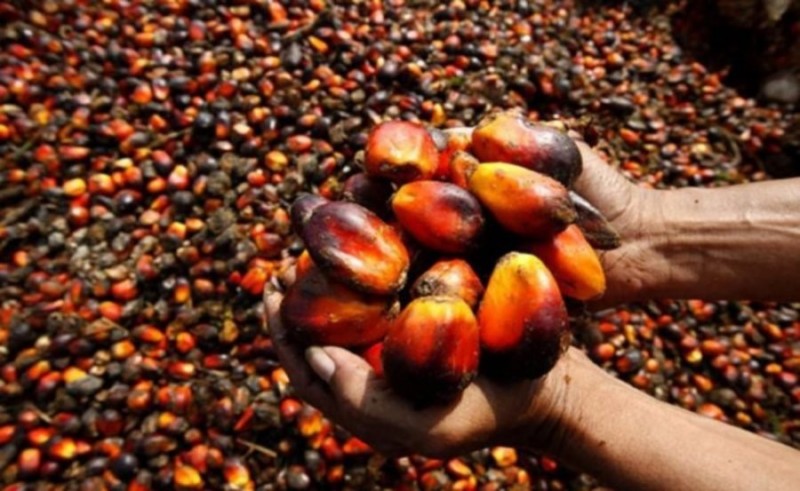
Smallholders play a vital role in the oil palm industry which is one of the main sectors that generate economic growth for Malaysia. Almost 27 per cent of the country's total oil palm area is cultivated by more than 440,000 smallholders either independently or under the management of the federal and state government agencies.
As such, we need to continue strengthening the role of smallholders particularly in increasing the productivity through a sustainable manner as well as their involvement in the downstream sector. Various programmes are being implemented to increase the production of oil palm products which in turn will boost the income and the well-being of the smallholders.
We provide oil palm planting advisory services to smallholders through TUNAS offices stationed throughout the country to assist the smallholders. These officers impart information and technology related to oil palm cultivation and management to increase the productivity of the smallholders.
To increase the income of smallholders, various incentives such as the Crop Integration Scheme (ITa) and the Livestock Integration Scheme (ITe) were introduced to optimise land use. These schemes are able to cultivate agricultural and livestock entrepreneurs among the smallholders.
Apart from that, the government also offers Oil Palm Smallholder Replanting (TSPKS) and Oil Palm Smallholder Agricultural Input (IPPKS) easy financing schemes, as well as B40 Oil Palm Smallholder Cash Crop Programme (TBK40).
Under the Agro Bank – MPOB Easy Financing Schemes, smallholders can apply for loans to purchase oil palm seeds, fertilisers, pesticides and insecticides for their farms. These incentives and facilities are part of the government's continuous efforts to improve the living standards of smallholders.
MPOB is also active in developing various mechanisation and research technologies that can be adopted by smallholders to improve work efficiency and productivity.
The use of mechanisation has successfully increased worker productivity by 38 to 60 per cent for the process of unloading of fresh fruit bunches (FFB). The use of the motorised palm fruit harvesting machine or Cantas developed by MPOB, has resulted in an increase in harvesting productivity of over 100 per cent, to 8.7 tonnes per day compared to 3.6 tonnes per day with the manual method.
The Ministry of Plantation Industries and Commodities and MPOB work together to increase the productivity and income of smallholders through the establishment of the Sustainable Palm Growers' Cooperative (KPSM). Until July 2022, there were 69 KPSM throughout Malaysia of which 24 were in the Peninsular, 27 in Sabah and 18 in Sarawak. KPSM allows smallholders to sell FFB in bulk directly to the mills at higher prices.
We are committed to increase sustainable palm oil production in line with global demand for sustainable palm oil. The Malaysian Sustainable Palm Oil certification (MSPO) which mandatory implementation since 2020 addresses the environmental, social and economic aspects of palm oil production, as well as confirming that the oil produced is of good quality, does not pollute the environment, through work procedures which are safe and based on Good Agricultural Practices (GAP).
As of July 2022, the total area of smallholder oil palm plantations that has received MSPO certification was 1.37 hectares (ha), amounting to 84.33 per cent of the total area of 1.5 ha throughout Malaysia.
This includes 692,180 ha under organised smallholder groups operated by government agencies such as Federal Land Development Authority (FELDA), Federal Land Consolidation and Rehabilitation Authority (FELCRA), Sarawak Land Consolidation and Rehabilitation Authority (SALCRA) and Sabah Land Development Board (SLDB). Another 676,170 ha under independent smallholder groups or Sustainable Palm Oil Clusters (SPOCs) supported by MPOB also received the MSPO certification.
This means that 100 per cent of the 692,180 ha of organised smallholder oil palm plantation areas have been MSPO certified. On the other hand, 82.2 per cent of the 676,170 ha of independent smallholder oil palm plantation areas have been MSPO certified.
Overall, 84.33 per cent of the 1.37 ha of smallholder oil palm plantation areas have been MSPO certified.
MPOB has established SPOCs to assist independent smallholders to obtain MSPO certification and promote good agriculture practices (GAP) as well as to unite them for common benefits. Whereas, for organised smallholders, assistance is provided through the respective federal and state agencies.
The cost of implementing MSPO certification for independent smallholders is fully borne by the government through incentive. Advisory services on MSPO certification can be obtained from the nearest MPOB officers or from organised smallholder agencies such as FELDA, FELCRA, SALCRA and SLDB.
The implementation of MSPO certification improve the quality of FFB and the Malaysia palm oil and hence, strengthens market assurance at the international level, opens up new markets and brands the our palm oil as the premium and sustainable palm oil.
Source: https://www.nst.com.my/business/2022/09/827568/strengthening-roles-oil-palm-smallholders

